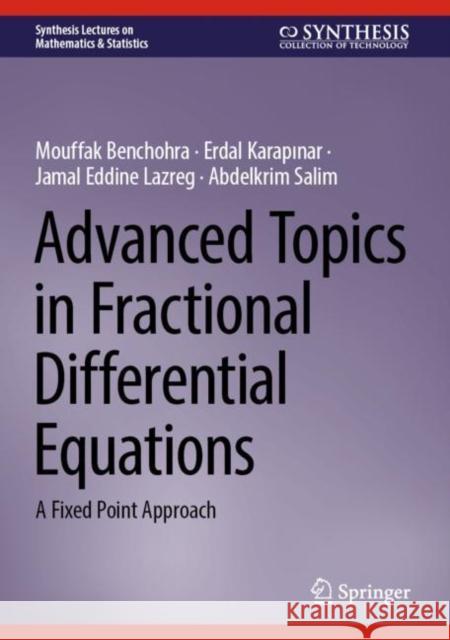Advanced Topics in Fractional Differential Equations: A Fixed Point Approach » książka
Advanced Topics in Fractional Differential Equations: A Fixed Point Approach
ISBN-13: 9783031269271 / Angielski / Twarda / 2023
Advanced Topics in Fractional Differential Equations: A Fixed Point Approach
ISBN-13: 9783031269271 / Angielski / Twarda / 2023
(netto: 153,32 VAT: 5%)
Najniższa cena z 30 dni: 154,18
ok. 16-18 dni roboczych.
Darmowa dostawa!
This book explores fractional differential equations with a fixed point approach. The authors highlight the existence, uniqueness, and stability results for various classes of fractional differential equations. All of the problems in the book also deal with some form of of the well-known Hilfer fractional derivative, which unifies the Riemann-Liouville and Caputo fractional derivatives. Classical and new fixed point theorems, associated with the measure of noncompactness in Banach spaces as well as several generalizations of the Gronwall's lemma, are employed as tools. The book is based on many years of research in this area, and provides suggestions for further study as well. The authors have included illustrations in order to support the readers’ understanding of the concepts presented.Includes illustrations in order to support readers understanding of the presented concepts· Approaches the topic of fractional differential equations while employing fixed point theorems as tools· Presents novel results, which build upon previous literature and many years of research by the authors
This book explores fractional differential equations with a fixed point approach. The authors highlight the existence, uniqueness, and stability results for various classes of fractional differential equations. All of the problems in the book also deal with some form of of the well-known Hilfer fractional derivative, which unifies the Riemann-Liouville and Caputo fractional derivatives. Classical and new fixed point theorems, associated with the measure of noncompactness in Banach spaces as well as several generalizations of the Gronwall's lemma, are employed as tools. The book is based on many years of research in this area, and provides suggestions for further study as well. The authors have included illustrations in order to support the readers’ understanding of the concepts presented. Includes illustrations in order to support readers understanding of the presented concepts· Approaches the topic of fractional differential equations while employing fixed point theorems as tools· Presents novel results, which build upon previous literature and many years of research by the authors











